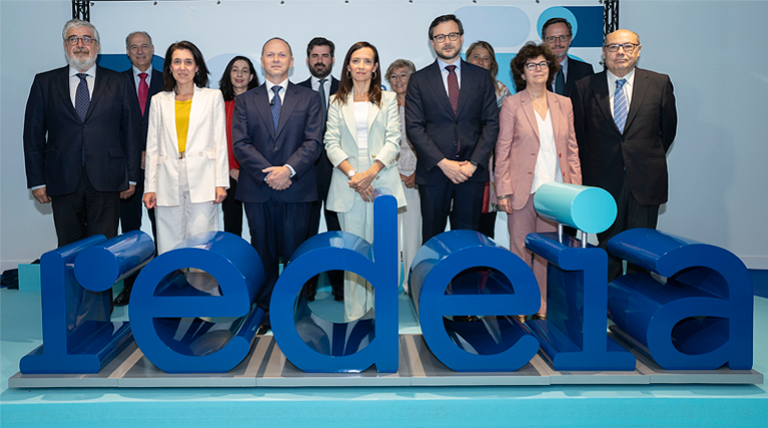We are a global operator of essential infrastructure
- A free concert by students from the School is being hosted at the Collegiate Church of Bolea on Friday 7 June, as well as a workshop with virtual reality glasses on Saturday 8 June in the town hall.
- These activities are part of the Música Cercana project, a tour of rural Spain aimed at promoting equal access to culture, education and leisure for people living in sparsely populated areas.
Redeia, the parent company of Red Eléctrica, and the Reina Sofía School of Music have chosen the town of La Sotonera (Huesca) as one of the stops on the Música Cercana project, a tour of free recitals aimed at bringing live classical music to rural areas with a sparse population. The tour also includes workshops with virtual reality goggles that allow you to immerse yourself in the work of great composers.
'Redeia is firmly committed to equal opportunities and the development of rural areas, where we deploy most of our infrastructure. Living in a depopulated area of Spain need not be synonymous with fewer rights and opportunities. This tour aims to bring first class classical music to the places it does not usually reach, helping people who live in rural areas to have access to culture, education and leisure on equal terms", says José Igancio Lallana, Redeia's delegate in Aragon.
Julia Sánchez, CEO of the Reina Sofía School, internationally recognised for its academic and artistic excellence adds: “From the moment the school was founded, one of our objectives has been to make music more accessible to all. This means sharing our students' talent in major national and international concert halls, but also in places where the conditions for enjoying these artistic experiences on a regular basis are not available".
On Friday 7 June at 19:00, the Collegiate Church of Santa María La Mayor in Bolea will host a concert lasting approximately one hour in which the string quartet of the Reina Sofía School of Music will perform pieces by Giacomo Puccini, Ludwig van Beethoven and Antonin Dvorák. It is a free event, with free admission until full capacity is reached, giving the audience the opportunity to enjoy the talent of young musicians and, at the same time, boost the career opportunities and employability of these students by enabling them to perform outside conventional cultural circuits.
Ana Molina (violin), Moira Cauzzo (violin), Álvaro García (viola) and María Salvatori (cello) make up this string quartet from the Reina Sofía School of Music, where they are currently training in their respective instruments.
The following day, Saturday 8 June, a workshop will be held at La Sotonera's Town Hall, allowing participants to enjoy the music of Mozart, Tchaikovsky and Respighi, taking advantage of the benefits offered by technology, specifically virtual reality glasses.
The workshop, which will last about 50 minutes, is an immersive experience created by the Reina Sofía School in which the participant is invited to discover the work of great composers in a new way: travelling from the stage of an orchestra concert to the workshop of a luthier, passing through a palace in Venice, a natural area and other virtual environments. A mediator places the pieces into context and matches the music to the emotions it provokes: Mozart and joy, Tchaikovsky and sadness or Respighi and surprise.
Two workshop sessions will be held, at 11:00 and 12:00. The activity is open to all audiences, with no need for previous musical training. Prior registration by email is required: aytosotonera@aragon.es.
About the Reina Sofía School of Music
Founded in 1991 by Paloma O'Shea, the mission of the Reina Sofía School of Music is to support young musicians in their artistic and personal development and to make music more accessible to society. Each year, around 160 students from over 30 different nationalities study at the school with tuition-free enrolment, selected solely based on their talent. At the school, they receive personalised instruction from the world's best specialists and perform in over 300 public concerts organised each academic year.














